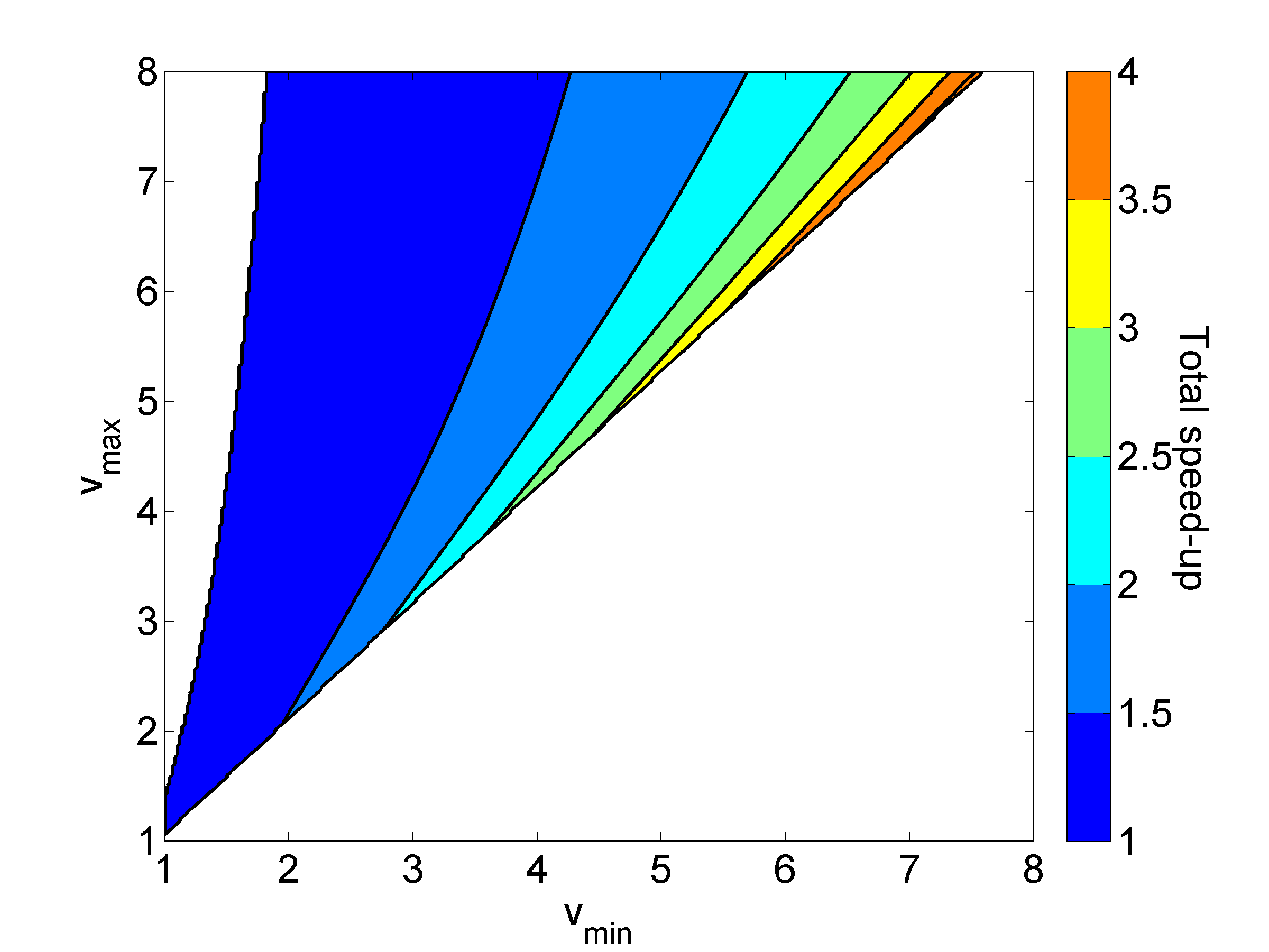Section: New Results
Estimating the speed-up of Adaptively Restrained Langevin Dynamics
Participants : Zofia Trstanova, Stephane Redon.
We performed a computational analysis of Adaptively Restrained Langevin dynamics, in which the kinetic energy function vanishes for small velocities. Properly parameterized, this dynamics makes it possible to reduce the computational complexity of updating inter-particle forces, and to accelerate the computation of ergodic averages of molecular simulations. We analyzed the influence of the method parameters on the total achievable speed-up. In particular, we estimated both the algorithmic speed-up, resulting from incremental force updates, and the influence of the change of the dynamics on the asymptotic variance. This allowed us to propose a practical strategy for the parametrization of the method. We validated these theoretical results by representative numerical experiments on the system of a dimer surrounded by a solvent.
|



